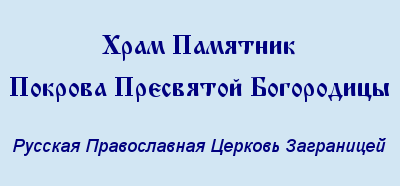Dear Brothers and Sisters in Christ,
Congratulations with the feast of the Resurrection of the Lord and the after-feast of the Transfiguration!
Today let’s briefly discuss the Fourth Ecumenical Council. Not long after the completion of the third council, new theological disagreements about the second person of the Holy Trinity began to appear. As is sometimes the case, the reaction to a certain evil can be too energetic and a new extreme can appear. This is what happened after the Third Ecumenical Council. Let’s remember that the heretic Nestorius taught that in the person of Jesus Christ there are two separate beings, man and God, and that there is no sound union between these two beings. Nestorius denied that God’s incarnation, suffering, and death. As a reaction to this teaching, a certain monk named Eutychius, an abbot of a large monastery of the capital, began to preach that the union between God and man in the person of Jesus Christ was to such a degree sound that His human nature, although it existed in the beginning, was completely consumed by the divine nature. As a consequence, he taught that in Christ there was but one divine nature, contrary to the Orthodox dogma that in the person of our Saviour there are two natures, human and divine.
Eutychius and his teaching were condemned at a local council, which was presided over by the Holy Hierarch Flavian of Constantinople in 448. Eutychius could not come to terms with this outcome and instead of repenting, appealed this decision to the Roman and Alexandrian hierarchs. The Holy Heirarch Leo, the Pope of Rome, supported St. Flavian and the Orthodox, while Dioscorus of Alexandria supported Eutikhius. Once again, turmoil gripped the Church and the need for an ecumenical council became evident. Unfortunately, that council which gathered in 449 in Ephesus under the presidency of Dioscorus was not ecumenical but, on the contrary, a ‘robber council.’ At this council, Eutychius was admitted to communion and in such a manner his dogmas were deemed Orthodox. Contrary to the usual customs and procedures of the Church, the representatives of the Roman Pope were not permitted to speak and the Holy Hierarch Flavian was beaten so severely and abused physically that he died not many days after the council.
To right these injustices, the new emperors Sts. Marcian and Pulcheria, called a council in the autumn of 451. This way the actual Fourth Ecumenical Council, which gathered in Chelcedon. It was attended by 630 fathers. This council was in session for almost a month and diligently studied all the theological and administrative issues which troubled the Church in those years. The position of the Holy Hierarchs Flavian and Leo were deemed orthodox, while that of Eutychius pronounced heretical. Dioscorus, although he was summoned thrice, refused to attend the council and answer for his actions at the Robber Council of Ephesus held in 449, and was therefore deposed and exiled. In such a way, the Orthodox dogma that in the person of Jesus Christ there is a human as well as divine nature and that “the distinction of natures [is] by no means taken away by the union, but rather the property of each nature [is] preserved, and concurring in one Person” (The confession of Chalcedon) was confirmed. Do you see that the important idea that God was truly joined to man was preserved by the council?
Unfortunately, the Fourth Ecumenical Council did not calm the turmoil in the Church. The followers of Eutychius and Dioscorus, also known as the Monphysites, that is those that believe in the one (mono) nature (physis) of Christ, especially those in Egypt and in the East, could not accept the decision of the council and, with time, established their own administrative church structures that exist up to our own time (Copts, Ethiopians, Armenians). The following two councils would return to the question of the Monophysites. We’ll discuss these council on the following Sundays, while today, let us pray to the Holy Hierarchs Leo and Flavian, as well as the Emperors Marcian and Pulcheria, the champions of Orthodoxy, so that we may spend the remaining days of this fasting period in peace and joyfully meet the coming feast of the Dormition of the Most-Holy Mother of God!
priest Alexis







